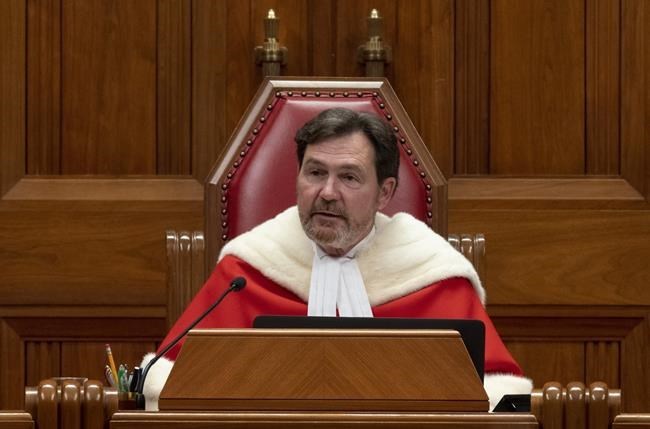MONTREAL — Canadian courts need to be more transparent in order to maintain public faith in the justice system, the chief justice of the Supreme Court of Canada said Thursday ahead of a rare sitting outside of Ottawa.
Chief Justice Richard Wagner told The Canadian Press it's now more important for the courts to release information themselves — to counteract the possibility that inaccurate information on social media might damage their credibility.
“I think you have to be transparent. I think that judges, for instance, have to try to release decisions in clearly accessible language, to be transparent. That's one way to not only increase but support trust in the justice system,” he said in an interview in Montreal.
Wagner is on a media tour ahead of two Supreme Court hearings next week in Quebec City, the second time in the high court's history that it is hearing cases outside Ottawa. The court held hearings in Winnipeg in 2019.
The chief justice said the decision to hold hearings across Canada is part of a larger push to make the country's top court more open and accessible.
That push also includes publishing summaries of decisions written in plain language, so that people can understand the essential elements of those decisions. Wagner said the court has also begun releasing an annual review of the court’s activities.
If people understand how the court works, Wagner said, they won't be concerned that it is too deferential to government or that individual judges are indebtedto the politicians who appointed them.
“People should keep their faith in their institutions,” he said. “Because if people lose faith in institutions like the court, well, for me, it's like the beginning of anarchy, because people will settle their claims on the streets.”
Canadians are lucky to have an independent judiciary, Wagner said, but it shouldn’t be taken for granted.
Wagner said he worries about the high court becoming politicized, like its counterpart in the United States.
“The U.S. is a very polarized country and it shows in their institutions. I hope that we will never get there, and I think we will never get there, because of the way our democracy has evolved for the last 100 years, but we have to work for it," he said. "The biggest danger would be to say we’re not like them, that our judiciary is independent, impartial, there’s no worries."
He said Canada needs to find ways to improve its justice system — which would include more funding.
He said federal and provincial governments have often neglected the justice system, prioritizing other areas such as education and health care.
"That means a lack of judges, lack of courthouses, lack of resources, technology (and) underpaid employees," he said.
The Supreme Court's 2016 Jordan decision — which established timelines for trials — was the result of that lack of financing, he said, adding that he thinks the "message is getting through" and that governments have begun to invest more in the justice system.
The adoption of new technology by the courts during the COVID-19 pandemic has improved access to justice and should be maintained, Wagner added.
"We should not go back to our old ways of doing things," he said. "We should use technology more and more, and government should provide help for the courts, also, to use technology."
This report by The Canadian Press was first published Sept. 8, 2022.
Jacob Serebrin, The Canadian Press



